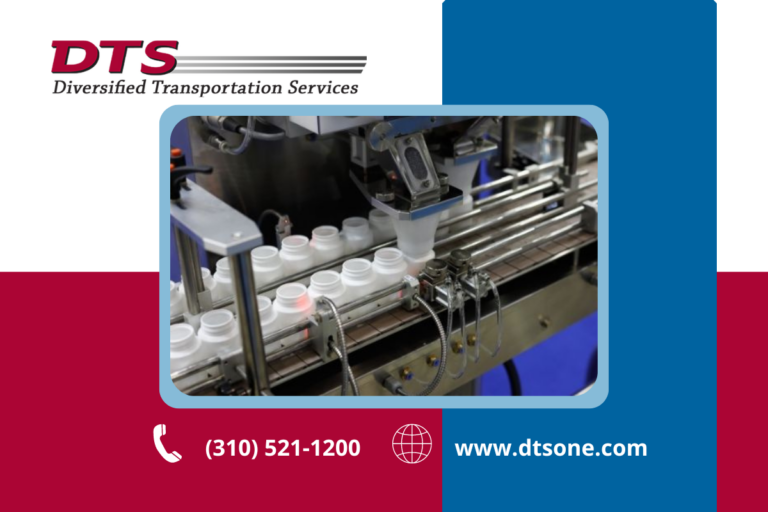
For any business, finding reliable transportation for their products is a high priority. If they don’t have their own fleet of trucks, they likely depend on third-party logistics companies and freight carriers. That’s not a bad thing either. Freight carriers have the experience to carry just about anything from point A to B. However, the pharmaceutical industry presents a challenge for freight carriers.
Shipping a variety of medicines and vaccines is an important job that must be done just right. The Food and Drug Administration (FDA) regulates every aspect of the pharmaceutical industry, including the shipment of drugs. There are many logistics challenges for the pharmaceutical industry that companies must overcome daily. Partnering with an experienced pharmaceutical transport company is a good way to help overcome these obstacles.
The ability to locate a shipment anywhere in the world is a big deal, especially when dealing with medicine. Any company that produces goods wants to know where their products are at all times. Being able to find their products in the event of an accident can mean the difference between making money or losing a shipment. The increase in third-party logistics, affiliate selling, and e-commerce has made visibility more important. Pharmaceutical companies must jump through hoops at every stage of production and transportation, right up until the consumer buys the product. In most instances, a producer knows when something leaves their facility and when it arrives at the destination. Pharmaceutical companies need to know where their products are at all stages to ensure they stay compliant with regulations.
Temperature control is an important aspect of transporting medicines and vaccines. Many of these items must be kept within a specific temperature range, or they will spoil and become useless. In a global market, regulations for temperature-controlled transport differ from nation to nation. Auditing outside vendors isn’t impossible, but it’s not easy either, especially if a company uses more than one carrier or forwarding partner. The European Union (EU) is slowly implementing consistent practices across its member nations. The problem is that the U.S. has different regulations, as do Canada, Mexico, and Japan. Keeping track of the different regulations from country to country is a huge task.
The FDA has rules and regulations for every aspect of the pharmaceutical industry. While the number of rules isn’t growing out of control, they are becoming more focused and specific. Not having new regulations every year is good because there is already a lot to keep track of. However, putting a laser focus on the existing rules presents its own challenges. For example, if previous FDA regulations stated that every bottle of aspirin must come in a blue bottle with a white cap, new regulations now clarify that statement to require that all bottles be navy blue and eggshell. Even if the change in the existing rule is small in the eyes of the FDA, it still creates a massive ripple effect. Pharmaceutical companies are massive, employ thousands of people, and deal with hundreds of vendors. A change in packaging or labeling requirements means that companies will have to change logistics standards as well.
The expansion of e-commerce and the emergence of third-party logistics companies increased challenges with warehousing. Medicines that require special temperature control for shipping now need it for storing as well. Traceability within the warehouse is important to manage the supply chain and keep track of inventory. Vaccines and medicines are the targets of thieves, so keeping exact inventory at all times is the main focus. The warehouse becomes another place for companies to monitor and audit for compliance. Warehouses that store medicines and medical supplies must meet strict cleanliness guidelines, temperature controls, and background checks of employees.
In the past, it was primarily the manufacturing of medicines that needed to be monitored on a continuous basis. Now, and in the future, the logistics aspect will need to be monitored to stay compliant too. Companies will need to create a structured internal auditing program that includes internal audit checklists and tools for auditing external logistics providers. An internal auditing plan isn’t just about complying with government regulations—it’s also a tool for streamlining processes and striving for operational excellence. A complete auditing plan should include risk management for every aspect of the supply chain.
Due to the increasing amount of temperature-sensitive products, unexpected events that occur during transport are a constant challenge. No matter how vigilant you are in overseeing service providers and shippers, slip-ups are bound to occur from time to time. Delays at customs, union strikes, extreme weather events, and containers dropped in the ocean are all events that you can’t anticipate in this business. Whatever method of shipping you choose, you must still account for these unforeseen events to some degree. This could mean using extra packaging, sending smaller shipments, or avoiding countries that have stringent border control.
A logistics challenge for the pharmaceutical industry that’s currently being taken into consideration is data collection. Extreme data collection is the new solution to every problem in the world. A company identifies a problem, collects data, and produces a solution. Unfortunately, it’s not always that easy. Within the pharmaceutical logistics community, there aren’t many data points to collect right now. Companies need product stability data to find the right logistics solution based on the product. Temperature, shock, and vibration sensitivity are all monitored to create a risk profile for specific products. Companies use that profile to validate different stages of transport, including temporary warehousing, temperature-controlled containers, and ground handling. As data becomes available for collection, companies can begin to develop strong profiles. Based on those profiles, pharmaceutical companies can share information with their shipping partners to devise better strategies and processes.
Whether you're a company looking to improve one facet of your supply chain, your entire supply chain, or simply looking for a transportation and logistics consultation, we can help.